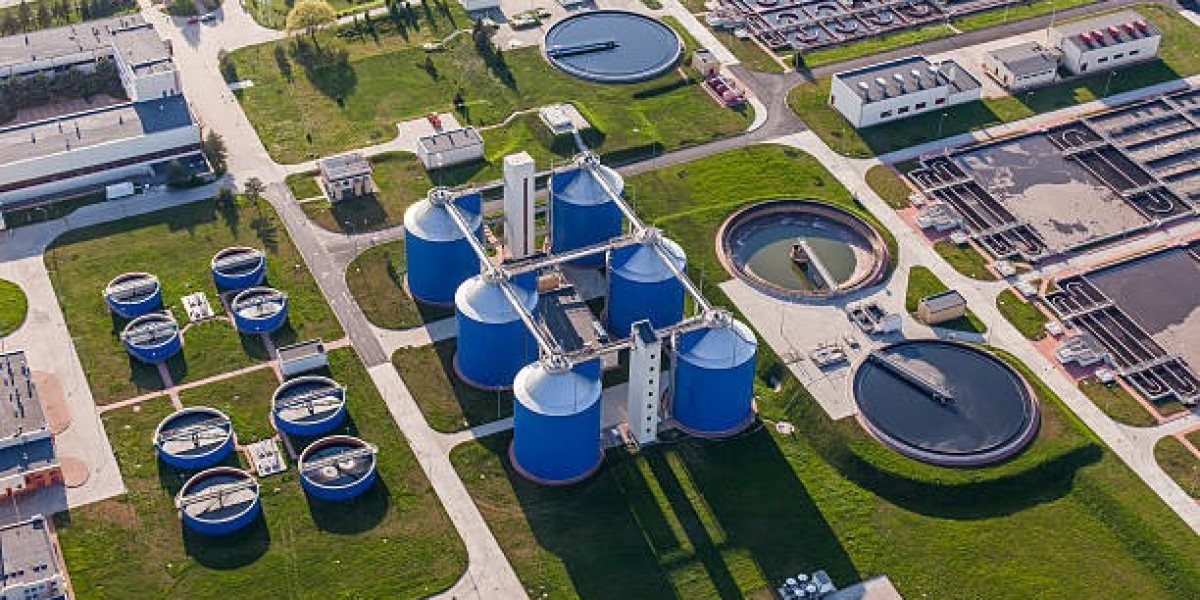In 2025, the global water management discourse reached a turning point. Population densities, urbanization, and climate change are driving clean water demand to record highs. Wastewater treatment plants protect our water supplies. These facilities clean and recycle wastewater and preserve public health and ecosystems. Understanding wastewater treatment is crucial as industries and municipalities face pressure to manage water responsibly. This article discusses why wastewater treatment plants are essential to clean water management, including public health, environmental protection, and economic growth.
This is high time to explore how these facilities ensure a sustainable water future for all.
Introduction: What Are WTPs?
Wastewater treatment plants treat sewage and industrial wastewater before reusing or releasing it. They help ensure that discharged water meets safety standards, protecting public health and the environment.
How do They Work?
Most wastewater treatments have multiple steps:
- Preliminary Treatment: Plastics and sticks are removed from wastewater during preliminary treatment. Consider it an initial filter for huge stuff.
- Primary Treatment: Wastewater sits in big tanks until heavier solids form sludge. Much of the contamination is removed here.
- Secondary Treatment: Magic happens here. Microorganisms decompose wastewater organic materials. This procedure is vital for decreasing dangerous contaminants.
- Tertiary Treatment: The final stage comprises advanced treatment procedures, such as filtration and disinfection, to guarantee that the water is clean and suitable for discharge or reuse.
- Sludge Treatment: The residual sludge from the primary and secondary stages is treated further, commonly through anaerobic digestion, which helps reduce its volume and can even produce biogas for electricity.
Why Wastewater Treatment Plants Are Essential
- Protecting Public Health: One of the most crucial functions of wastewater treatment plants is maintaining public health. Untreated or inadequately treated wastewater can hold bacteria that lead to significant illnesses. By efficiently cleaning wastewater, we considerably lower the danger of waterborne infections.
- Example: Untreated sewage can cause illness epidemics in densely populated metropolitan areas. Effective wastewater treatment keeps our water safe for drinking and recreation.
- Ecological Protection: Protecting ecosystems requires wastewater treatment plants. Draining untreated wastewater into rivers, lakes, or oceans degrades the environment.
- Eutrophication: Untreated wastewater nutrients like nitrogen and phosphorus can generate algal blooms, depleting oxygen and damaging aquatic life. Treatment plants remove nutrients before discharge, reducing this risk.
- Resource Recovery: In 2025, wastewater will be a resource. Modern wastewater treatment plants recover water energy and nutrients.
- Water Reuse: Advanced systems can reuse treated wastewater for irrigation, industrial activities, or drinking water. This conserves freshwater and eases treatment facility strain.
- Energy Production: Biogas from sludge treatment powers certain plants. This can power the plant and feed the grid.
- Economic Growth Support: Wastewater treatment plants boost local economies. Industry needs clean water, and towns need wastewater treatment to support rising populations.
- Attracting Businesses: Water-intensive industries like manufacturing and food processing prefer areas with strong wastewater treatment infrastructure. Clean water management drives economic growth.
- Regulation Compliance: In 2025, water quality regulations will be tougher than ever. Wastewater treatment plants enable municipalities and companies to comply with these requirements, avoiding fines and providing safe water.
- Regulation-Ahead: Professional wastewater treatment services can help facilities adapt to changing rules.
Wastewater Treatment Future
Wastewater treatment plants will change in the future. These trends are expected in the coming years:
- Advanced Technologies: Technology makes wastewater treatment more efficient and effective. Artificial intelligence and machine learning are being used to improve treatment.
- Smart Monitoring: Sensors and IoT devices can give real-time water quality and treatment data for faster adjustments and efficiency.
- Sustainable Methods: Sustainability is at the forefront of modern wastewater treatment. Green technologies and carbon reduction are becoming more important to facilities.
- Energy Efficiency: Many plants use solar panels and other renewable energy sources to power their operations.
- Public Participation: Growing knowledge of water challenges is encouraging citizen participation in water management. Educational activities and community involvement can improve wastewater treatment understanding and support.
- Community Programs: Water conservation and pollution prevention education can promote responsibility.
Economic Impact of Wastewater Treatment
- Job Creation: Wastewater treatment plants employ many. These facilities employ engineers, technicians, and maintenance workers, boosting local economies.
- Skilled Workforce: The wastewater treatment industry needs a competent workforce as technology improves. Training initiatives and educational partnerships can train future workers.
- Infrastructure Investment: Local economies benefit from wastewater treatment infrastructure investments. Local contractors and suppliers benefit from large investments in treatment facility upgrades and maintenance.
- Economic Multiplier Effect: Wastewater treatment infrastructure spending can stimulate local businesses and create jobs.
- Agricultural Support: Agriculture, especially in dry locations, benefits from treated wastewater. Farmers can conserve freshwater and maintain agricultural yields by irrigating with treated water.
- Sustainable Agriculture: This approach supports food production and reduces water use.
Innovations in Wastewater Treatment
- Membrane Technology: Membrane filtering is a new wastewater technology. Semi-permeable membranes remove pollutants from water, producing high-quality treated water.
- Efficiency: Membrane technology removes pollutants faster than previous methods, making it appealing to many treatment plants.
- Biotechnology Advances: Wastewater treatment is improved by biotechnology. Genetically modified microorganisms may break down organic materials and contaminants.
- Tailored Solutions: These advances enable more effective and specialized wastewater treatment methods.
- Decentralized Treatment: Rural and underdeveloped communities are adopting decentralized wastewater treatment systems. Smaller wastewater treatment systems reduce infrastructure by treating wastewater at the source.
- Flexibility: Decentralized wastewater management systems are more versatile and may be adjusted to community needs.
Policy and Regulation Role
- Legislation Support: Wastewater treatment projects depend on government policies. Supportive legislation can boost water management financing, innovation, and community involvement.
- Grants and subsidies for wastewater treatment projects can encourage governments and industry to build modern facilities.
- Public-Private Partnerships: Public-private partnerships can improve wastewater treatment facilities. These alliances can improve treatment facilities with resources and experience.
- Stakeholders may align their sustainable water management aims and ensure facilities satisfy community needs by working together.
Conclusion
In 2025, wastewater treatment plants will be vital to our water management system. While using innovative and sustainable methods, they protect public health, the environment, and economic prosperity. Effective wastewater treatment will become more important as we face water scarcity and pollution. Recognizing these plants' vital function allows us to collaborate on a clean, sustainable water future for all. Understanding and supporting wastewater treatment programs is essential to manage our most precious resource, water, whether you work in Industrial Effluent Water Treatment, government, or as a concerned citizen.
From public health to economic prosperity, wastewater treatment plants have several benefits. Embrace future innovations and methods to ensure safe, pure water for generations.







